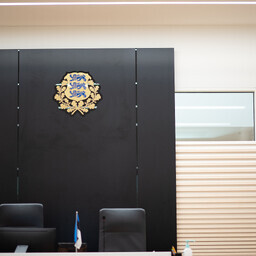In September, a scandal was caused by a member of the Reform Party, Diana Trump. She spoke with a Kremlin-friendly journalist about Estonia's position in the event of a possible war. Trump said that Russia could quickly destroy Estonia. She was condemned and had to leave the party. However, little attention was paid to the fact that Trump is also a lay judge. This highlights the weaknesses of Estonia's judicial system.
The lay judge system began during the Soviet Union era. At that time, each judge was assigned 75 lay assessors. The role of a lay judge is to help the court speak more clearly. Former lay judge Priit Põiklik said that a lay judge should ensure a human measure in court decisions.
Harju County Court judge Merit Bobrõšev explained that the lay judge system began when Estonia did not have enough judges. Originally, it was supposed to be a temporary solution, but now it continues to exist.
Lay judges participate in court proceedings for more serious crimes. They must be 25-70-year-old citizens with a high level of proficiency in Estonian. They must not be bankrupt debtors or convicted criminals. Judges and police officers cannot be lay judges.
The selection of lay judges is carried out by local governments. Critics argue that the selection process is inadequate. The training and supervision of lay judges are weak.
Currently, there are 362 lay judges in Estonia. They come from various fields, including retirees. A lay judge has the same rights in the courtroom as a professional judge.
Court decisions are made based on voting. If lay judges decide, for example, to impose a 12-year prison sentence, it will stand. A judge can write a dissenting opinion, but the majority vote decides.
Lay judge Priit Põiklik said that his training was short and inadequate. He recalls that judges often treated them poorly. One lawyer told him directly that he was sorry for him.
Minister Liisa Pakosta said that the lay judge system needs reform. Currently, a major judicial reform is being worked on. The plan is to either abolish lay judges entirely or retain them only for more serious crimes.

